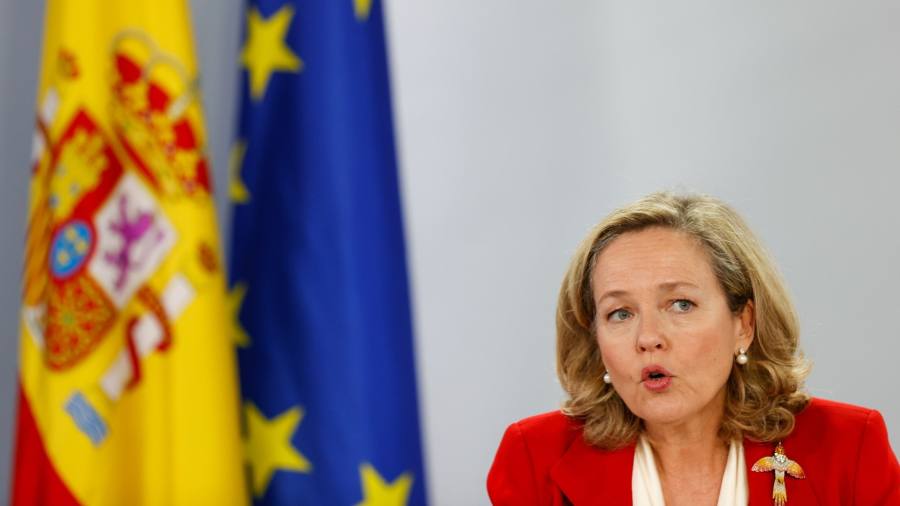
Spain will push ahead with its controversial plan to impose windfall taxes on banks and energy companies on Thursday when lawmakers are set to approve the move despite the concerns of international institutions.
The Socialist-led government proposed the temporary taxes in July to raise €7bn as it seeks funds to mitigate the painful impact of high energy costs and inflation, especially on low-income households.
Windfall taxes have become a source of contention elsewhere in Europe since Spain first announced its plan, straining relations between governments that say taxes on extraordinary profits are justified and businesses that say hurting them will hurt the broader economy.
Pedro Sánchez, Spain’s prime minister, has said the taxes are a way for big business to “lend a hand” while many Spanish families are suffering from a sharp rise in the cost of living.
“They are going to be approved this afternoon,” said Nadia Calviño, Spain’s deputy prime minister and economy minister. “I do not expect there to be significant modifications at this stage.”
Spain wants to raise a total of €3bn from big banks over the next two years via a 4.8 per cent tax on their income from interest and commissions. From utilities, it is aiming to raise €4bn over the same period with a 1.2 per cent tax on their sales.
The plan has been roundly criticised by the largest groups that will have to pay them, including the lenders Santander and BBVA and power producer Iberdrola.
This week, the IMF weighed in, saying it “will be important to monitor the impact of the levies on credit availability, credit costs and banks’ resilience, as well as on the incentives of energy companies to invest”.
The IMF noted that in both sectors Spain’s taxes are, unusually, applied to revenues instead of profits. Although bank revenues from interest payments are rising as interest rates go up, the fund noted that costs could also rise if an economic slowdown leads to more loan defaults.
Earlier this month, the European Central Bank criticised the bank tax, warning in a non-binding opinion that it could damage the capital position of lenders and disrupt monetary policy. It also questioned Spain’s requirement that banks do not pass the cost of the tax on to clients, which runs counter to ECB policy.
Once the law has passed Congress, the lower house of parliament, it will need to be passed by the Senate.
Ignacio Galán, executive chair of Iberdrola, told the Financial Times the energy tax was “arbitrary”. He said the idea his company was generating windfall profits thanks to record high energy prices was bogus because it sold much of its electricity via long-term contracts at fixed rates.
An amendment that would benefit utility groups stipulates that the tax would not apply to revenues from regulated activities, which include the operation of electricity and gas distribution networks.
Spain’s plan is separate from an EU proposal for a windfall tax that would apply only to oil and gas companies. Eurelectric, the trade body for the European electricity industry, on Thursday decried Spain’s attempt to target a wider group of companies.
A further amendment says that at the end of 2024 the Spanish authorities should evaluate whether the taxes should be made permanent. The IMF said: “These measures should remain temporary and should not be considered substitutes for the necessary medium-term tax reform.”
Alicia Coronil, chief economist at Singular Bank, a Madrid-based private bank, said the government should do more to cut public spending and broaden the country’s tax base, including by attracting investment and combating the underground economy. “We should not always put more pressure on those that already pay tax,” she said.